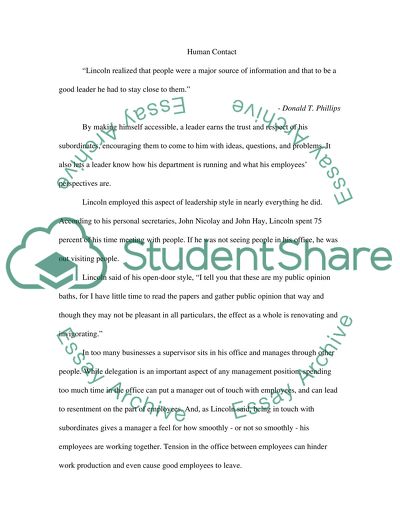Cite this document
(“Lincoln on Leadership Book Report/Review Example | Topics and Well Written Essays - 1500 words”, n.d.)
Lincoln on Leadership Book Report/Review Example | Topics and Well Written Essays - 1500 words. Retrieved from https://studentshare.org/miscellaneous/1519056-lincoln-on-leadership
Lincoln on Leadership Book Report/Review Example | Topics and Well Written Essays - 1500 words. Retrieved from https://studentshare.org/miscellaneous/1519056-lincoln-on-leadership
(Lincoln on Leadership Book Report/Review Example | Topics and Well Written Essays - 1500 Words)
Lincoln on Leadership Book Report/Review Example | Topics and Well Written Essays - 1500 Words. https://studentshare.org/miscellaneous/1519056-lincoln-on-leadership.
Lincoln on Leadership Book Report/Review Example | Topics and Well Written Essays - 1500 Words. https://studentshare.org/miscellaneous/1519056-lincoln-on-leadership.
“Lincoln on Leadership Book Report/Review Example | Topics and Well Written Essays - 1500 Words”, n.d. https://studentshare.org/miscellaneous/1519056-lincoln-on-leadership.


